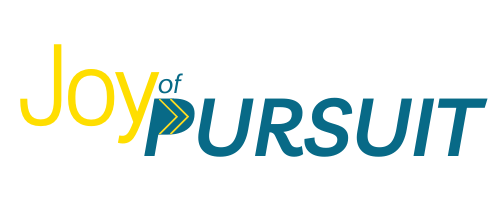Elevating Interviews: Strategies for Effective Candidate Assessment
Are you investing sufficient time in preparing for candidate interviews? Effective interviews hinge on thorough preparation. Your time, as well as your candidates', is valuable. Crafting a structured and well-thought-out agenda is essential. Asking the right questions during an interview is pivotal for achieving a thorough and unbiased assessment of candidates.
When it comes to interviewing candidates, you want to gather as much relevant information as possible. In The Hiring Process, we recommend using an Interview ScoreCARD. This tool will assist with an objective assessment of the candidate by all team members who participate in the interviews. The CARD acronym stands for Culture, Ability, Role, and Desire. Scoring on these basic components during an interview will help you build a well-rounded assessment of the candidate. (The Interview ScoreCARD is available as a free download in The HIring Process Toolbox. Download here.)
Utilizing the ScoreCARD in addition to a structured agenda will allow you to maintain consistency in the questions you ask all candidates. This practice ensures that you're collecting uniform data for fair comparisons.
Prepare for the interview by creating a variety of questions that cover all the main topics from the ScoreCARD: skills, work experience, personality, value fit, coachability, emotional capacity, etc. Remember, while a charismatic individual might impress at first glance, it's important to dig deep and uncover substance beyond surface charm.
Introduction: Setting the Stage
Kick off the interview by introducing all team members present. Provide a brief overview of their roles and how they connect with the hiring process. This creates transparency and demonstrates the collaborative nature of your organization. Candidates will appreciate understanding who they'll potentially be working with and who holds influence over the hiring decision.
Get to Know the Candidate: Icebreaker Questions
Begin the question portion of the interview with an open-ended question that encourages the candidate to share their motivations and interests. An example of this could be, "Tell us why you are interested in this position." Such a question serves as an icebreaker, allowing the candidate to ease into the interview while offering insights into their mindset and priorities.
Skills and Experience Assessment: Focused Questions
Transition into more targeted questions about the candidate's skills and experience. These inquiries should align with the specific requirements of the role and refer back to your prepared list of questions. For instance, if the candidate indicated expertise with a particular tool, ask them to elaborate on their experience and the capacity in which they've utilized it.
Company Culture Compatibility: Values Matter
One question that can provide invaluable insights is centered around your company's culture and values. If you've shared information about your core values or mission statement prior to the interview, reference it again. Pose a question like, "After reviewing our Core Values, what resonates most with you?" This helps gauge the candidate's alignment with your organization's values and mission.
Candidate Questions: A Two-Way Dialogue
Remember, interviews aren't just about candidates impressing you; it's a two-way street. Candidates are also evaluating your company to see if it aligns with their career aspirations. To make the most of this interaction, you need to be prepared, engaged, and respectful of their time.
Prompt the candidate to ask questions too. Their inquiries can reveal a lot about their personality, interests, and concerns. This interaction showcases their engagement and eagerness to understand the role and company better. The absence of questions might indicate a lack of interest or preparation, which could raise red flags depending on the position and your company culture.
Conclusion: Wrap Up with Clarity
As the interview winds down, thank the candidate for their time and interest. Leaving them hanging is not the impression you want to make. Instead, provide clear communication about the next steps. A sample conclusion script could be, "Thank you for your time today. We appreciate the opportunity to learn more about you. We are continuing to interview other candidates and will be in touch with a decision by [insert deadline]."
The art of interviewing lies not just in finding candidates with impressive technical skills and experience, but in understanding who they truly are and how well they align with your company's goals and values. By following this comprehensive approach and asking a diverse range of questions, you'll be equipped to make informed decisions and select candidates who are not only qualified but also the right fit for your team. Remember, interviews are a powerful tool for mutual evaluation, so make the most of this opportunity.
Ready to give your hiring process a boost? The Hiring Process book provides strategy to streamline the process and tools to provide consistency and clarity for informed hiring decisions. For more in-depth explanations, the HR for Small Business Course shows you exactly how to customize the tools and communication to support your team, hiring, and business goals!
This page contains affiliate links meaning we earn a commission if you use those links. We only recommend brands we use and trust. See our disclosures.
Welcome to Joy of Pursuit!
Pursuing your small business goals can be challenging.
Whether you are a company of one or have a team, I can assist you with building the small business of your dreams.





